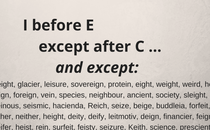Can someone please explain why when meaning you will mislay something we use lose yet when we make a selection we use choose. Loose being used for 'slack'. I just cannot get my head around this everytime have to use loose or lose. Help!
Prayer ban at Katharine Birbalsingh’s school is lawful, High Court rules .



